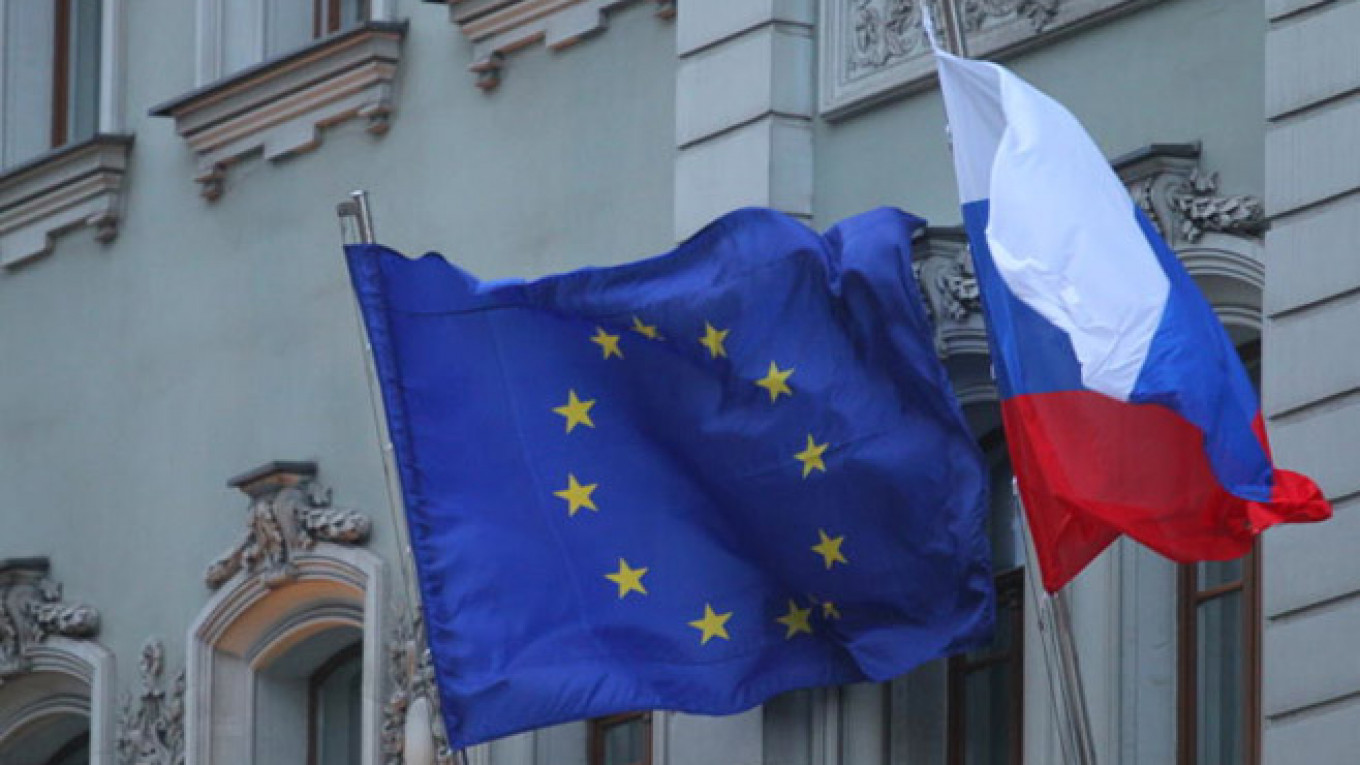Even as Russian leaders proclaim the impossibility of isolating Russia and their own unwillingness to see it happen, Russia's movement toward self-imposed isolation is gaining momentum, despite official statements to the contrary. As this country's aggressive and omnipresent state propaganda turns increasingly anti-Western and anti-European, Russian officials and ordinary citizens have begun building a new Iron Curtain.
The media learned a few days ago that the Education and Science Ministry sent a letter to the rectors of a number of Russian universities in anticipation of a visit to those institutions by Vygaudas Usackas, the ambassador of the European Union Delegation to Russia.
What's more, the letter advised rectors to take pre-emptive action by explaining the official position of the country's leadership on foreign policy issues — especially with regard to Ukraine and Crimea — before the students meet with the ambassador.
The rectors were instructed to "neutralize the position of the EU" regarding the justification of imposing sanctions against Russia and regarding the ideas that Russia had "annexed" Crimea or had "violated the norms of international law."
The letter describes the activities of the EU Delegation in Russia as primarily subversive in nature and in language typically used by the Federal Security Service, or FSB.
It analyzes the schedule of Usackas' working trips to "European schools in the region" as part of program by the delegation to develop its educational program, and even asserts that the EU is working against Russia's position by cooperating with "the segment of civil society under its sponsorship."
The letter asserts that the European Union's subversive activity primarily targets youth.
For the first time since the collapse of the Soviet Union, the federal center is issuing ideological guidance to universities, this time concerning highly controversial issues on which specialists normally hold diverse points of view.
Does this mean that all university scholars specializing in international affairs and international law must now toe the official line — which, by the way, only two years ago stated that Crimea unquestionably belonged to Ukraine, and now contends just the opposite?
The Education and Science Ministry's letter reflects not only an attempt to dictate policy to universities — institutions that, by definition, should serve as centers of independent thinking and research — but also the leadership's fear of alternative viewpoints and arguments that question their actions in any way.
It would seem that if Russia's actions are absolutely right, if the majority of the population supports the authorities and if leaders control a powerful and sophisticated propaganda machine, then the EU ambassador and his infrequent visits to provincial universities can do little harm.
However, such anxiety reveals that leaders are actually in a very weak position and that their arguments concerning the Ukraine crisis are equally dubious.
As head of the EU Delegation in Russia, Usackas has already sent a letter to Education and Science Minister Dmitry Livanov requesting a meeting and an explanation of the ministry's position concerning the delegation's contacts with Russian universities.
His puzzlement is understandable. After all, with EU-Russian relations at a nadir, Usackas is trying hard to develop relations in those areas that are not subject to mutual constraints.
At the same time, State Duma Speaker Sergei Naryshkin warned that Russia might consider withdrawing from the Council of Europe if Russia's parliamentary delegation is deprived again this year of the right to vote in the Parliamentary Assembly of the Council of Europe (PACE).
However, despite the serious and acute Ukraine crisis, nobody in the Council of Europe has raised the question of excluding Russia from the organization.
Russia joined the Council of Europe in 1998 and ratified more than 50 of its conventions, including the important Convention for the Protection of Human Rights and Fundamental Freedoms.
Russia is under the jurisdiction of the European Court of Human Rights (ECHR) and more than 1,000 Russian citizens have managed to defend their rights in that court, thereby obtaining compensation from the state and exerting a humanizing influence on Russia's courts, prisons and laws.
Naryshkin himself expressed the hope that Russia would not end up withdrawing from the Council of Europe.
However, that possibility cannot be ruled out, also in part because of the recent ECHR decision in favor of Yukos shareholders and the large number of cases the court has agreed to hear concerning demonstrators imprisoned for their participation in the Bolotnaya Ploshchad protests and the arrests of anti-corruption whistleblower Alexei Navalny and his supporters.
If Moscow deepens its confrontation with the West and withdraws from the very European organizations that are pushing it toward making necessary institutional reforms, it will itself undermine this country's fundamental and long-term national interests and close the road to what it needs most of all — modernization.
Vladimir Ryzhkov, a State Duma deputy from 1993 to 2007, is a political analyst.
A Message from The Moscow Times:
Dear readers,
We are facing unprecedented challenges. Russia's Prosecutor General's Office has designated The Moscow Times as an "undesirable" organization, criminalizing our work and putting our staff at risk of prosecution. This follows our earlier unjust labeling as a "foreign agent."
These actions are direct attempts to silence independent journalism in Russia. The authorities claim our work "discredits the decisions of the Russian leadership." We see things differently: we strive to provide accurate, unbiased reporting on Russia.
We, the journalists of The Moscow Times, refuse to be silenced. But to continue our work, we need your help.
Your support, no matter how small, makes a world of difference. If you can, please support us monthly starting from just $2. It's quick to set up, and every contribution makes a significant impact.
By supporting The Moscow Times, you're defending open, independent journalism in the face of repression. Thank you for standing with us.
Remind me later.








